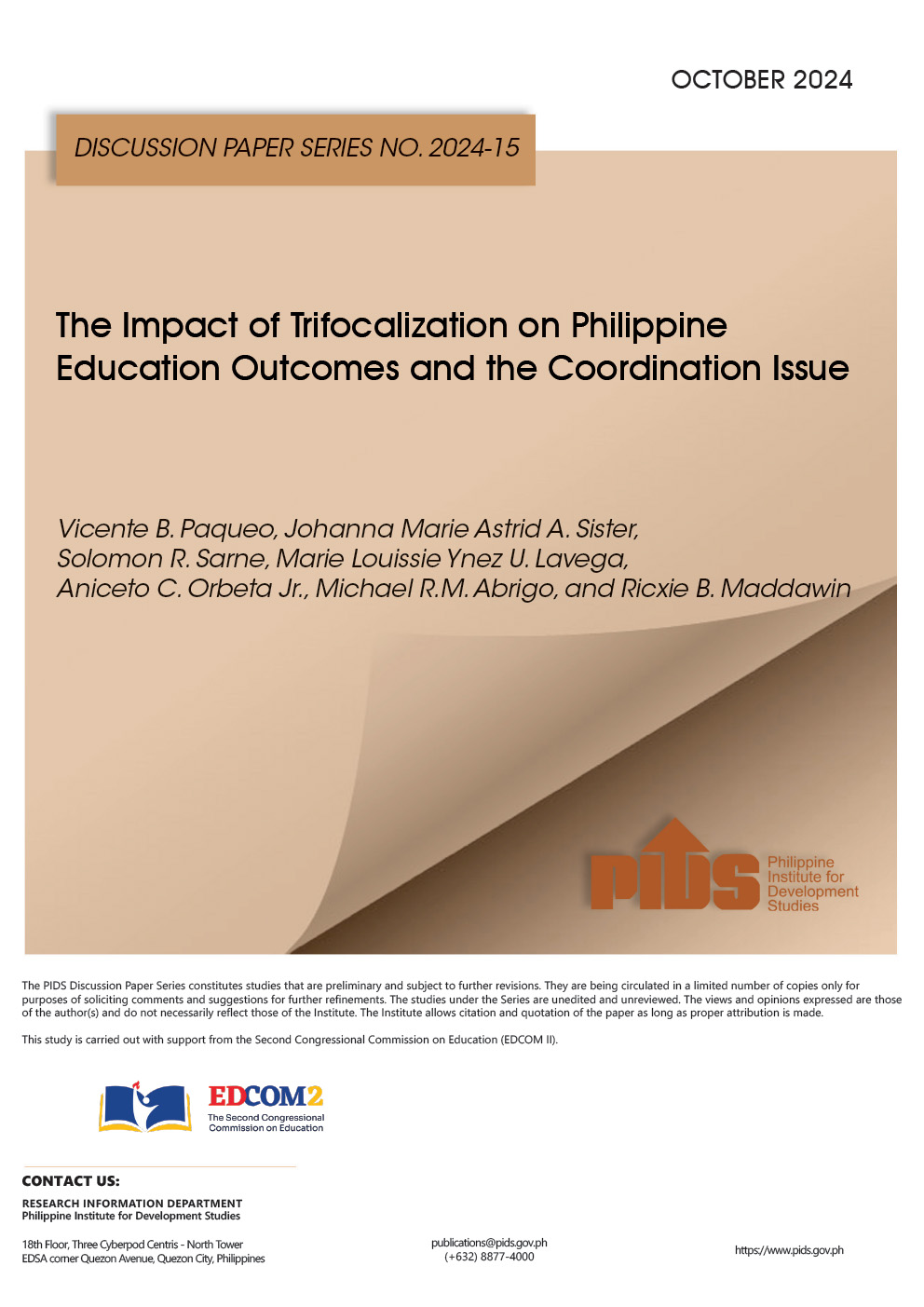"CABOTAGE” comes from the French caboter, which means "to sail along the coast.”
In our context it refers to the right to transport cargo or passengers via land, sea or air between two places within the same country.
Under Republic Act (RA) No. 1937 (Tariff and Customs Code of the Philippines) and RA 9295 (Domestic Shipping Development Act of 2004), the privilege of engaging in domestic coastwise trade is reserved purely for Philippine vessels. Effectively, foreign vessels are prohibited to ply domestic routes carrying passengers and cargo, except under special albeit discretionary circumstances. After foreign goods are brought into a Philippine port of entry, domestic shippers are to transship these to the final point of destination, thus entailing additional costs which are eventually passed on to consumers.
The restriction resulted in the local shipping industry being dominated by very few players. A study by a government think tank suggested that the lack of competition in the industry contributed to high consumer prices and slow modernization.
Now, the rules have changed. Geared towards the primary objective of promoting competition in the maritime cargo shipping industry, RA 10668 or the Cabotage Act was signed into law by President Benigno S. C. Aquino III on July 21.
The law intends to lift the long-standing cabotage restrictions imposed upon foreign vessels. Under the law, the activities of foreign vessels have been expanded to include sea carriage of:
- Foreign cargo arriving from a foreign port to its Philippine port of destination, after being cleared at its port of entry;
- Foreign cargo of another foreign vessel from its Philippine port of entry to its Philippine port of destination;
- Foreign cargo intended for export from a Philippine port of origin to another Philippine port and eventually to its foreign port of destination;
- Foreign cargo of another foreign vessel through a domestic transshipment port to its foreign port of destination; and
- Empty foreign containers going to or coming from any Philippine port, or going to or coming from a foreign port and being transshipped between two Philippine ports.
With the relaxation of the rules, Philippine vessel operators fear domination by foreign players of the domestic shipping industry thereby rendering moot the objective of the law. However, scholars on cabotage liberalization would agree that "[C]ompetition provides a credible threat to those who refuse to modernize and maintain efficient operation.” (PIDS Policy Notes No. 2014-03, Llanto and Navarro, 2014).
Be that as it may, the disparity in the tax regime of international and domestic shippers may be seen as an obstacle in fostering fruitful and holistic competition.
For instance, foreign shipping lines doing business in the Philippines are subject to 2.5% Gross Philippine Billings Tax (GPBT) on gross revenue from outbound shipments, while domestic shippers are subject to 30% regular corporate income tax (RCIT) on net taxable worldwide income or 2% minimum corporate income tax (MCIT) on gross income, whichever is higher.
The National Tax Research Center (NTRC), in one of its research journals, explained that the apparent discrepancy lies in the fact that the 2.5% GPBT was determined by assuming a 90% ratio of deductions to an international carrier’s Philippine gross income, and the application of the previous (1977) RCIT of 25% on the assumed 10% net income. The difference in the tax treatment favors international carriers as the 2.5% GPBT approximated the then 25% RCIT. If the same logic will be applied to the present 30% RCIT, then the GPBT rate should be 3% and not 2.5%. In any case, an international shipper may avail of a reduced rate under a tax treaty on income derived from outbound cargo transport.
In addition to the GPBT, international shippers are governed by the following tax policies:
- 3% Common Carriers Tax (CCT) based on gross receipts from outbound transport of cargoes
- Exemption from 12% value-added tax (VAT) on outbound cargo carriage
- Exemption from 2% MCIT
On the other hand, domestic shippers, while entitled to certain fiscal incentives under special laws, are subject to the 12% VAT based on gross receipts from domestic operations, on top of the 30% RCIT or 2% MCIT.
Finally, the law did not delve on the tax implications of the relaxed rules. It remains to be seen whether revenue derived by foreign shippers, allocable to voyages from one Philippine port to another Philippine port of foreign cargo bound for overseas, are subject to GPBT, CCT or VAT. Clearly, there are certain tax aspects of the cabotage law which necessitate further clarification.
Overall, the law is seen as a welcome initiative to stimulate economic activity, to bring down shipping costs and to support the planned ASEAN market integration. It also aims to improve voyage safety and address the perennial problem of port congestion in Metro Manila.
Notwithstanding the law’s noble intentions, meaningful competition connotes that there must be a level playing field. Not all players get to have an equal chance of success in every competition. At the very least, however, each should play by the same set of rules.//
Randolph A. delos Santos is an assistant manager at the Tax Services Department of Isla Lipana & Co., the Philippine member firm of the PwC network.
randolph.a.delos.santos@ph.pwc.com
The Philippine cabotage regime: A level playing field?











